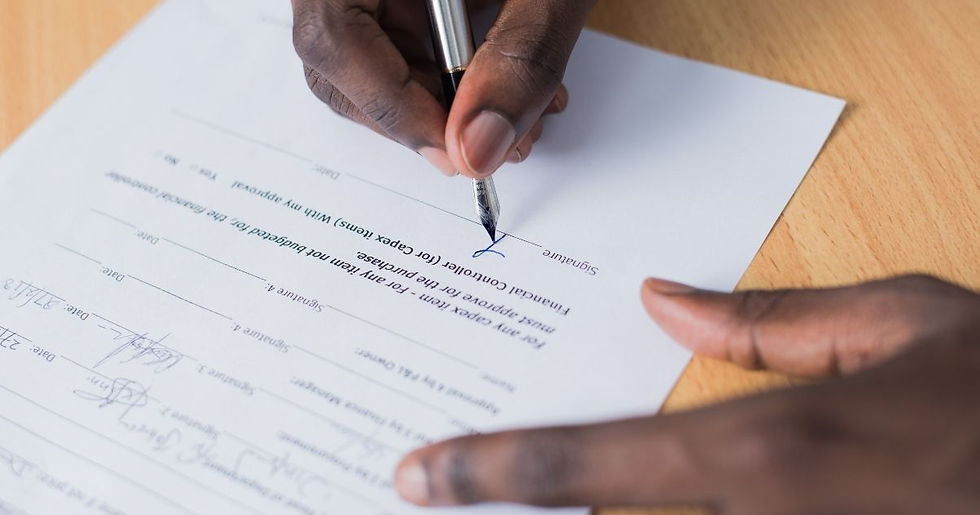Your last will and testament – nothing to be afraid of!
- Britta Rotmann

- Aug 11, 2025
- 4 min read
Updated: Dec 8, 2025
In my first article I spoke about having a go-bag for the end of your life. Packing a go-bag means you are as ready as you can be, put end of life issues aside and focus on the life you are in.
The first item in your go-bag should be your Will. This is a gift to those not joining you on the trip. If you have ever had to deal with an estate where there is no will you understand the difficulties this creates and the increased costs of administering an estate. Giving your family this gift allows them to honour and remember you without having to struggle administering your estate.

We are reluctant to draw up a will often for two reasons: we do not want to face the thought of our death or we think it is a complicated task. This article is about taking away this second reason:
A will is as simple as you want it to be. More important than the detailed content is actually that someone knows where it is.
The document needs to clearly show who you are (ID, full names, address and your marital status). If you are married all these details need to be listed for your spouse as well. If you are married then how you are married is important. Whether the marriage is in or out of community of property influences how your estate is administered.
The next bit of information is who you want to appoint to deal with all the administration that has to do with your estate. This person will be the one communicating with all necessary government entities, including the Master’s office at the High Court who need to approve how your estate has been dealt with. Their name and ID number must be clearly stated.
People often ask whether the executor should be someone you know or an attorney, accountant or bank. An executor has quite a lot of say in how your assets are distributed in certain instances, for example if a property is to be divided among several beneficiaries. It is therefore a good idea to have someone as an executor that you trust.
The fee of an executor is set by law. Institutions that offer to do a free will for you are often relying on the income they will receive as an executor of your will further down the line to make the free service worth their while.
Choosing family or a friend to be your executor could ensure they will put your interests first; however they are often not qualified to fulfil all the necessary requirements to finalise your estate. A clause in the will can allow them to have an attorney deal with all these necessary requirements. This ensures your intention is implemented and the legal requirements are fulfilled.
In your will you can specify that certain items go to a certain person and you also need to explain what you want to with what is left. A simple percentage allocation works well. If you want to be specific about who gets what - rather than simply allocating percentages of your entire estate - it is good to have a list of assets in your will.
Catering for minor children in a will is a more complex matter but in general the law provides how they must be catered for regardless of what is in the will. Naming a guardian in your will is one way to make your wishes known about who should be taking care of them.
If all of that seems like a lot to deal with I have good news!
Legal Aid South Africa has a simple template on its website with only 7 paragraphs. And easily understood instructions. This includes a paragraph protecting an inheritance going to someone who is married in community of property.
I would recommend one additional clause about burial if this is important to you. If there are strong feelings in the family about cremation and/or burial it is good to specify your wishes so that this is not the fight you leave behind.
Once you have all that in place, sign the will on every page, have two witnesses (who are not beneficiaries in the will) do the same and give copies to the executor and at least one other person, including your attorney and financial advisor, if applicable.
Then put it aside and focus on life!🌻
Meet Britta Rotmann
Britta is an end of life companion doula who shifted from a varied career in law, government, international organisations and NPOs to the more sacred work of being with people at the end of their life. Although her BA, LLB and Masters in Law bring relevant knowledge to the field, it is her ability to ask the tough questions and sit in difficult conversations that is her core competency in this work.
Britta writes about what makes our end of life processes easier so that we can focus on the sacredness of this time. Contact Britta at meerkatphilosophy@gmail.com or read more about her here.







